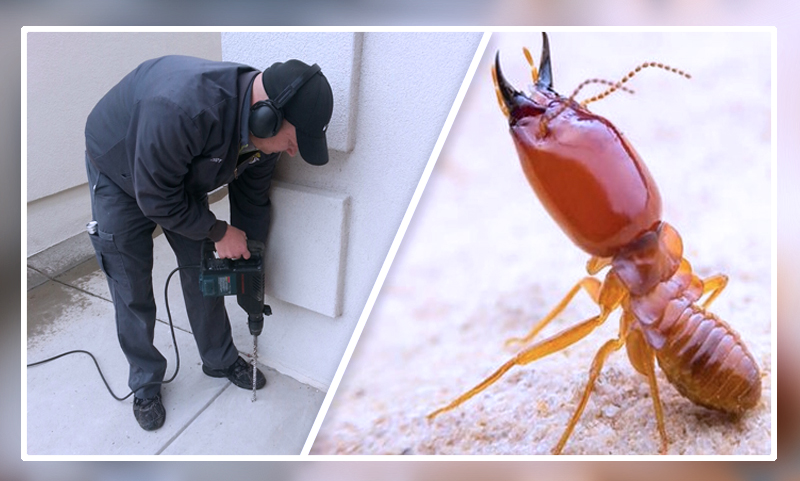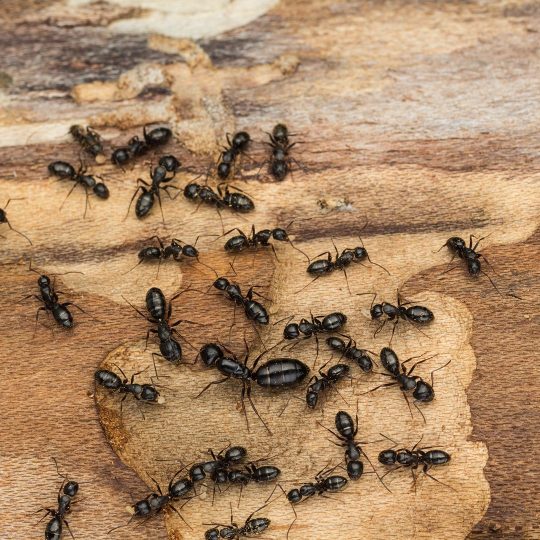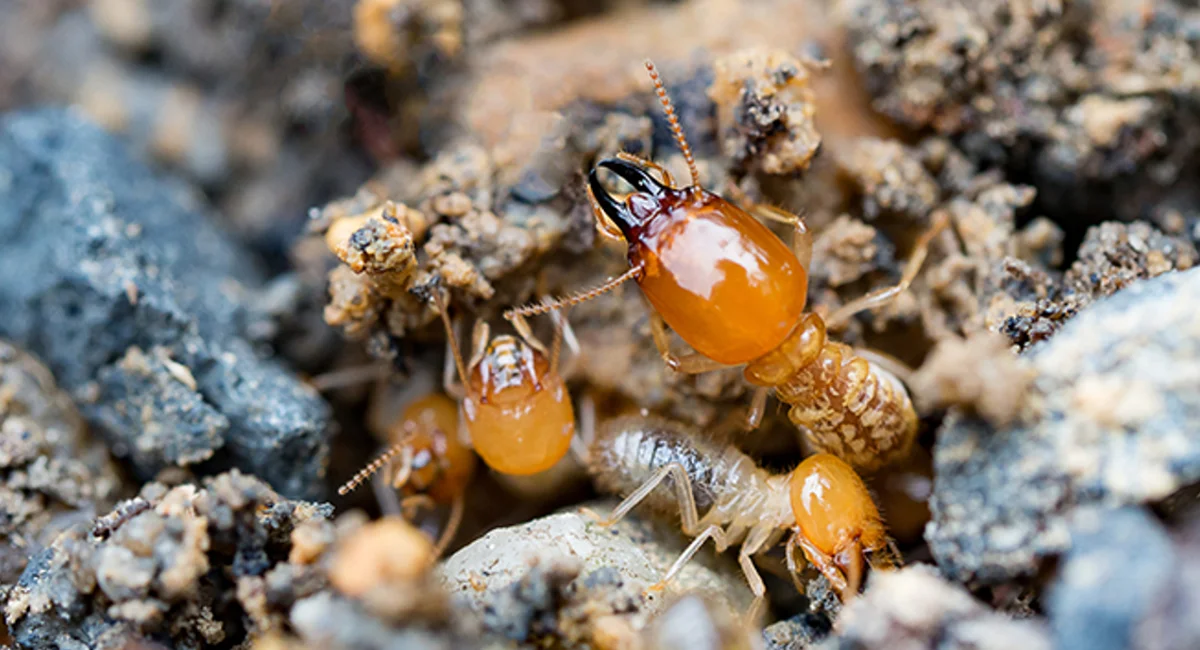Why Choose Our Termite Control Services: Expert Solutions for Effective Security
Ecological Influence of Parasite Control: Harmonizing Efficiency With Sustainability
The ecological impact of bug control is a vital issue that needs a fragile equilibrium in between attaining effectiveness in managing parasites and guaranteeing sustainability of our ecosystems. As we aim to shield our crops, homes, and wellness from the hazards postured by bugs, the approaches we use can unintentionally damage the setting. From using damaging chemicals that leak into our soil and water to the unexpected repercussions on non-target types, the consequences of traditional pest control techniques are significant. Nevertheless, there are emerging strategies that supply expect a much more lasting technique to pest management. These options not only aim to deal with the prompt pest troubles but also consider the long-lasting health and wellness of our earth.
Hazardous Chemicals in Bug Control
The application of harmful chemicals in pest control positions considerable ecological and wellness threats that warrant careful consideration and mitigation approaches. Insecticides, herbicides, and chemicals are generally made use of to remove bugs, yet their prevalent application can cause unplanned effects. These chemicals can infect soil, water resources, and the air, influencing not only the targeted parasites but additionally advantageous pests, wildlife, and humans.

To attend to these risks, integrated pest administration (IPM) techniques are being advertised as a much more sustainable alternative. IPM includes a combination of techniques such as organic control, habitat control, and the targeted usage of pesticides as a last hotel (ant control durham nc). By adopting a holistic approach to pest control, we can decrease the ecological and health impacts related to hazardous chemicals while effectively taking care of pest populations
Influence On Non-Target Species
Taking into consideration the unintentional repercussions of pest control approaches, the effect on non-target species is an important element that needs complete assessment. While insect control measures aim to target specific insects, various other organisms in the community might be unintentionally influenced. Non-target species, consisting of valuable bugs, birds, creatures, and even plants, can endure direct or indirect harm from chemical applications or organic control methods.
Insecticides developed to combat a certain insect parasite may hurt pollinators like bees or natural predators such as ladybugs. Organic control representatives, if not species-specific, can posture threats to unintentional targets, interrupting the environmental equilibrium.
To minimize the effect on non-target varieties, integrated pest monitoring (IPM) methods that highlight a holistic technique to pest control are suggested. These approaches prioritize the use of eco-friendly methods, minimizing damage to helpful organisms while properly managing pest populations. Performing thorough threat analyses and keeping track you can check here of the outcomes of pest control initiatives are crucial actions in securing non-target types and promoting overall ecosystem health.
Soil and Water Contamination
Unplanned ecological effects of bug control approaches extend past affecting non-target species, with substantial ramifications for dirt and water contamination. Chemicals, herbicides, and chemical fertilizers used in bug control can leach into the soil and pollute groundwater, posturing a threat to both terrestrial and aquatic communities. Dirt contamination can disrupt the equilibrium of microbes essential for nutrient biking and plant development, resulting in reduced dirt fertility and performance. Furthermore, these chemicals can continue the atmosphere for prolonged durations, accumulating in the dirt and potentially going into the food web.
Water contamination is one more essential problem associated with insect control methods. Overflow from agricultural areas treated with pesticides can bring these chemicals right into neighboring water bodies, influencing marine microorganisms and water top quality. Impurities in water resources can have far-ranging consequences, influencing not just water life yet likewise human health and wellness through the consumption of polluted water or aquatic organisms. To alleviate dirt and water contamination from bug control activities, incorporated bug administration approaches that focus on sustainability and decrease chemical inputs are important.
Air Contamination From Chemical Use
Direct exposure to airborne pesticides during farming applications positions a considerable concern for air contamination control procedures. Furthermore, chemical drift, where pesticides are carried by the wind to unexpected areas, can lead to the contamination of nearby ecological communities and water bodies.

Strategies for Sustainable Bug Control
In the realm of farming techniques, implementing lasting insect control techniques is vital for maintaining environmental equilibrium and safeguarding crop yields. Sustainable insect control highlights the usage of eco friendly methods to manage bug populaces properly while minimizing harm to non-target organisms and ecological communities. Integrated Parasite Monitoring (IPM) is an extensively adopted technique that incorporates organic, social, physical, and chemical control approaches to achieve long-term insect management options.
Plant turning and diversity are additionally reliable methods to disrupt pest life cycles and develop less desirable problems for insects to thrive. Ultimately, by incorporating these lasting bug control techniques, farmers can achieve an equilibrium between pest monitoring performance and environmental stewardship.
Final Thought
In verdict, the ecological impact of parasite control techniques should be very carefully considered to stabilize efficiency with sustainability. Unsafe chemicals used in pest control can cause soil and water contamination, air contamination, and damage non-target varieties - termite control. It is critical to execute lasting pest control techniques to decrease these negative impacts on the setting and promote a much healthier environment for future generations
By embracing an alternative approach to pest control, we can lessen the environmental and health and wellness impacts linked with dangerous chemicals while effectively taking care of pest populations.

To reduce the air pollution caused by pesticide usage, it is essential to take on incorporated parasite administration methods that focus on the usage of non-chemical parasite control approaches, such as plant turning, all-natural predators, and resistant crop varieties. Lasting insect control highlights the usage of ecologically pleasant techniques to take care of insect populations properly while minimizing injury to non-target microorganisms and communities. Integrated Parasite Administration (IPM) is a widely taken on strategy that combines organic, cultural, physical, and chemical control approaches to attain lasting parasite monitoring remedies.